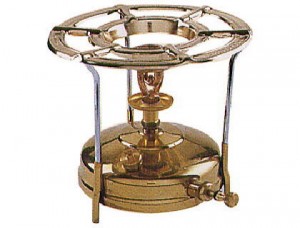Take the charcoal out of Haiti’s award-winning charcoal stove
Listening to Duquesne Fednard tell the BBC World Service’s business programme, about his award-winning charcoal stoves, I couldn’t help but think about a proposal put forward by my friend, IIT alumnus Maulik Radia.
Maulik, who’s lived in Haiti for years and years, says fuel-efficient kerosene stoves manufactured by a company in Rajkot, Gujarat, might be the answer to Haiti’s extreme energy shortage and impoverishing environmental issues.
Kerosene is cheap, relatively easy to vend and the crippling propane monopoly enjoyed by big Haitian businesses would become a thing of the past.
That’s the theory, anyway.
As Maulik points out, it’s been tested – and proved successful – in India. It’s true enough that kerosene stoves are widely used across India to cook. Despite an enormous population (1.25 billion) and a fair number of poor people (the World Bank said in 2010 that 32.7% of India lives on less than $ 1.25 a day) Indians are not turning trees into charcoal in the environmentally degrading way of Haitians.
Admittedly, Mr Fednard’s efficient cookstove (of which he’s already sold 33,000) uses less charcoal than others and this is why his company, D&E Green Enterprises, has been given the Ashden Award. The £20,000-prize is in a new category,‘Small Island Developing States’, which has been created with World Bank support.
Not before time. These small dots in the ocean are some of the most vulnerable places on the planet. As the WB’s Sustainable Energy Director S. Vijay Iyer explained at the Award-ceremony in London, small island states “face enormous challenges” and have little with which to respond. Most of the 7,000 islands in the Caribbean, for example, are bedevilled by exactly the problems Mr Iyer describes, which is to say “limited resources, isolation and vulnerability to natural disasters and external shocks”.
Mr Fednard’s efficient charcoal stove helps a bit but it continues the cycle of chopping trees and burning wood.



